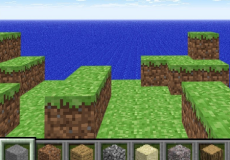

Minutescape
Advertisement
Minutescape is a first-person escape game structured around time management and spatial logic. The player wakes inside a confined area with limited time to find a way out before the environment resets. Each attempt lasts only a few minutes, forcing the player to memorize details, test combinations, and refine actions across multiple runs. The design focuses on observation and sequencing rather than speed alone. As the timer counts down, the space changes in subtle ways, providing new information or blocking old routes. The main objective is to understand the system that governs the environment and use it efficiently before time expires.
Advertisement
Similiar games
Minutescape is a first-person escape game structured around time management and spatial logic. The player wakes inside a confined area with limited time to find a way out before the environment resets. Each attempt lasts only a few minutes, forcing the player to memorize details, test combinations, and refine actions across multiple runs. The design focuses on observation and sequencing rather than speed alone. As the timer counts down, the space changes in subtle ways, providing new information or blocking old routes. The main objective is to understand the system that governs the environment and use it efficiently before time expires.
Structure and Core Gameplay
Minutescape divides its experience into repeating sessions, each governed by a countdown. The player interacts with objects, doors, and mechanisms within the limited time window. Some elements persist across runs, allowing gradual accumulation of progress, while others reset completely. This creates a rhythm where discovery alternates with repetition. Understanding what remains and what resets is essential for planning. The environment may appear minimal, but every surface, switch, and sound carries purpose in advancing escape sequences.
Core gameplay components include:
· Interactive puzzles requiring observation and timing
· Environmental clues that change between attempts
· Persistent progress markers for partial completion
· Countdown system defining the length of each run
· Incremental learning that refines player efficiency
These elements combine to make repetition a necessary part of advancement rather than a penalty. Each failed run adds knowledge that improves performance on the next attempt.
Progression and Design Logic
Progression in Minutescape relies on recognizing cause and effect within the room. Objects react differently depending on the order of interaction, meaning that the player must map logic through experimentation. Some puzzles require actions spread across multiple loops, while others appear only under specific conditions. Success depends on using previous mistakes as data. The game rewards patience and consistency by saving certain breakthroughs, such as opened doors or disabled locks, ensuring gradual progress despite constant resets.
Atmosphere and Player Perspective
Minutescape maintains a focused perspective by limiting player movement to a small but detailed area. The visual and sound design emphasize spatial awareness—clicks, hums, and echoes help identify which mechanisms are active or hidden. The lack of distraction ensures that attention stays on the puzzle logic and time remaining. Because every second carries weight, the player develops efficiency through habit, learning how to act without hesitation. The design transforms repetition into structure, where memorization and timing merge into a single continuous process.
Discuss Minutescape



















